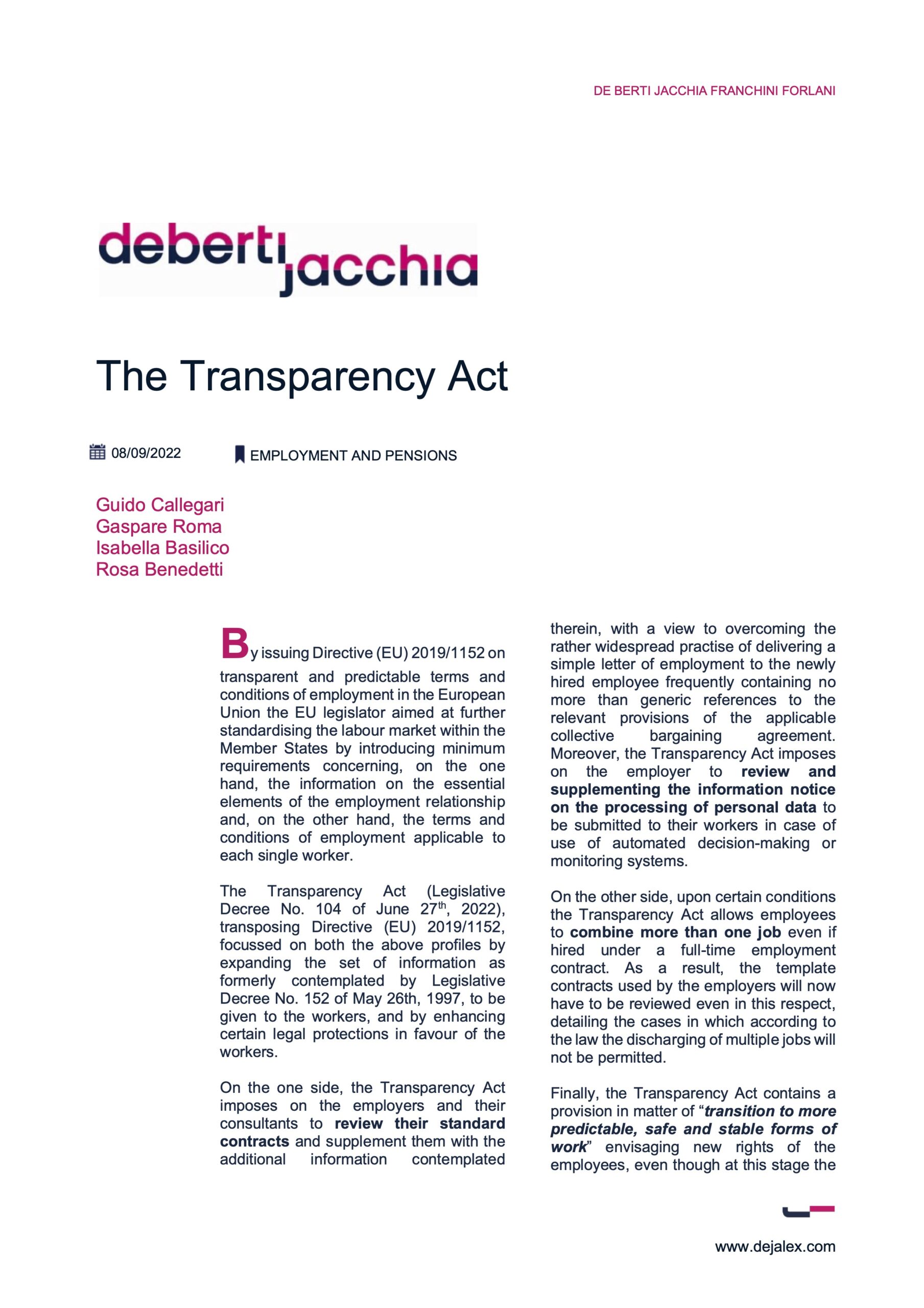By issuing Directive (EU) 2019/1152 on transparent and predictable terms and conditions of employment in the European Union the EU legislator aimed at further standardising the labour market within the Member States by introducing minimum requirements concerning, on the one hand, the information on the essential elements of the employment relationship and, on the other hand, the terms and conditions of employment applicable to each single worker.
The Transparency Act (Legislative Decree No. 104 of June 27th, 2022), transposing Directive (EU) 2019/1152, focussed on both the above profiles by expanding the set of information as formerly contemplated by Legislative Decree No. 152 of May 26th, 1997, to be given to the workers, and by enhancing certain legal protections in favour of the workers.
On the one side, the Transparency Act imposes on the employers and their consultants to review their standard contracts and supplement them with the additional information contemplated therein, with a view to overcoming the rather widespread practise of delivering a simple letter of employment to the newly hired employee frequently containing no more than generic references to the relevant provisions of the applicable collective bargaining agreement. Moreover, the Transparency Act imposes on the employer toreview and supplementing the information notice on the processing of personal data to be submitted to their workers in case of use of automated decision-making or monitoring systems.
On the other side, upon certain conditions the Transparency Act allows employees to combine more than one job even if hired under a full-time employment contract. As a result, the template contracts used by the employers will now have to be reviewed even in this respect, detailing the cases in which according to the law the discharging of multiple jobs will not be permitted.
Finally, the Transparency Act contains a provision in matter of “transition to more predictable, safe and stable forms of work” envisaging new rights of the employees, even though at this stage the scope of such new rights is not yet clearly defined. For sure this provision will further restrict the possibility to resort to forms of contracts other than open-ended employment contracts – including self-employment contracts and fixed-term employment contracts – further narrowing in such a fashion the verily poor level of flexibility of the Italian employment law system.


